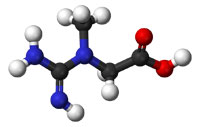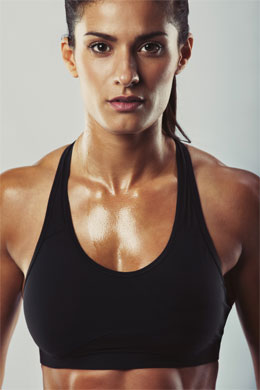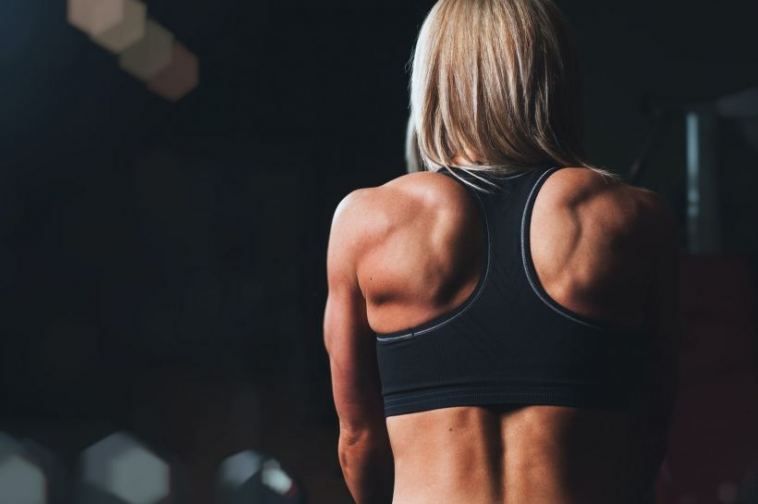- Like
- SHARE
- Digg
- Del
- Tumblr
- VKontakte
- Flattr
- Buffer
- Love This
- Save
- Odnoklassniki
- Meneame
- Blogger
- Amazon
- Yahoo Mail
- Gmail
- AOL
- Newsvine
- HackerNews
- Evernote
- MySpace
- Mail.ru
- Viadeo
- Line
- Comments
- Yummly
- SMS
- Viber
- Telegram
- JOIN
- Skype
- Facebook Messenger
- Kakao
- LiveJournal
- Yammer
- Edgar
- Fintel
- Mix
- Instapaper
- Copy Link
Introduction
You might automatically think of male bodybuilders when you hear the word creatine. This is true probably because creatine is one of the most well-known muscle growth supplements for men.
However, this particular supplement is not just for men. In fact, a lot of research shows that creatine also provides many benefits for women.
Creatine helps enhance your performance during your exercises. Not only that, it is also great for increasing muscle mass and boosting your strength.
However, many women who train most likely don’t take this supplement due to misinformation. One example is that you should only take creatine only if you want to obtain serious strength or muscle.
Well, we’re here to bust common misconceptions and answer key questions about creatine, and will show you why women should consider supplementing with it.
So, without further ado, let’s dive in…
What Is Creatine and How Does It Work?
 First of all, just to be clear, creatine is not a steroid. It is a completely different compound that is not related to hormones at all. In fact, creatine is an amino acid that we store in our brain and muscles for energy.
First of all, just to be clear, creatine is not a steroid. It is a completely different compound that is not related to hormones at all. In fact, creatine is an amino acid that we store in our brain and muscles for energy.
Creatine helps you train harder and longer than usual day after day. This will lead to enhanced training results over time. How does creatine do that exactly?
Your muscles are made up of tiny muscle fibers. Every time you contract a muscle to do a movement (a push-up, for example), each contracting muscle fibers will burn up a little bit of fuel. This fuel is called ATP.
ATP is a little molecule that is stored in your muscles in limited quantities. If you have a lot of movements going on during exercises, the ATP in your muscles will tend to become depleted. Once that happens, you will experience fatigue and find yourself with difficulty pushing your body as hard as you were before (when you started working out).
This is where creatine enters the story and saves the day. The creatine in your muscles permits your body to replenish the depleted ATP fast. This will delay the onset of fatigue and gives you more fuel for exercise, which prolongs your workout.
Creatine is mostly available in powdered supplements. However, you can also get it through red meat, fish, pork, and organ meat (heart, liver, kidneys). Furthermore, it would be best for vegans and vegetarians to take creatine supplements since they can’t get enough creatine through their diet.
How Does Creatine Impact Women?
 Creatine helps women build lean muscles. This is because it can help sustain energy through intense workouts such as sprints or high-intensity interval training.
Creatine helps women build lean muscles. This is because it can help sustain energy through intense workouts such as sprints or high-intensity interval training.
Moreover, a study shows that creatine can also help in supporting mental clarity during a workout. It does this by improving the brain’s oxygen uptake, which makes a huge difference in mentally challenging workouts such as complex dance routines and boxing.
Some women benefit more from creatine. It provides unique advantages for women over 50 years of age. In fact, the Journal of the International Society of Sports Nutrition claims that, in addition to creatine’s cognitive benefits, it can also help support healthy skeletal muscle mass and bone. These are a common concern when it comes to aging.
In another study, a group of postmenopausal women were given creatine and were asked to resistance training. It was found out that those women showed lower limb lean mass, increased physical function, enhance performance, and overall improved quality of life. Because of age, many women over 50 tend to experience a loss in overall muscle, which creatine and regular exercise can help with.
Does Creatine Work for All Women?
 Some benefit from creatine (responders), and unfortunately, some are not affected by this supplement (non-responders). The lack of impact in some women might be because these particular women do not respond to creatine at all in terms of muscular power, aerobic capacity, or strength. Moreover, the non-responder phenomenon could be connected to the size of the cross-sectional area of muscle fibers or the type of muscle fiber that a person uniquely possesses.
Some benefit from creatine (responders), and unfortunately, some are not affected by this supplement (non-responders). The lack of impact in some women might be because these particular women do not respond to creatine at all in terms of muscular power, aerobic capacity, or strength. Moreover, the non-responder phenomenon could be connected to the size of the cross-sectional area of muscle fibers or the type of muscle fiber that a person uniquely possesses.
Men and women who most likely have a larger cross-sectional area of muscle fibers and have more fast-twitch fibers have the power to increase their creatine more after seven days than those with smaller muscle cross-sectional area and fewer fast-twitch fibers. Essentially, women most likely possess smaller cross-sectional muscle fiber areas in both their slow-twitch and fast-twitch fiber types, as do men and women who do aerobic activity more than strength training.
Women also have higher average total muscle content of natural creatine, which is 10% than males. That is why they might need to ingest more creatine to increase their creatine levels higher than their natural creatine levels. Overall, the physiological differences between men and women stated above might explain why some women do not respond to the impacts of creatine supplementation.
The Bottom Line
Creatine is not a steroid. It is an amino acid that helps you prolong your workouts, which eventually leads to muscle growth. Furthermore, creatine is not only made for men. It also provides many benefits to women, especially those who are over 50.
You may also like…
About Theresa Duncan
Originally from Detroit, MI, Theresa has been offering health and fitness advice for the last 30 years while working as an engineer. She decided to turn her passion into a profession, and finds nothing more satisfying than helping others reach their health and fitness goals.

